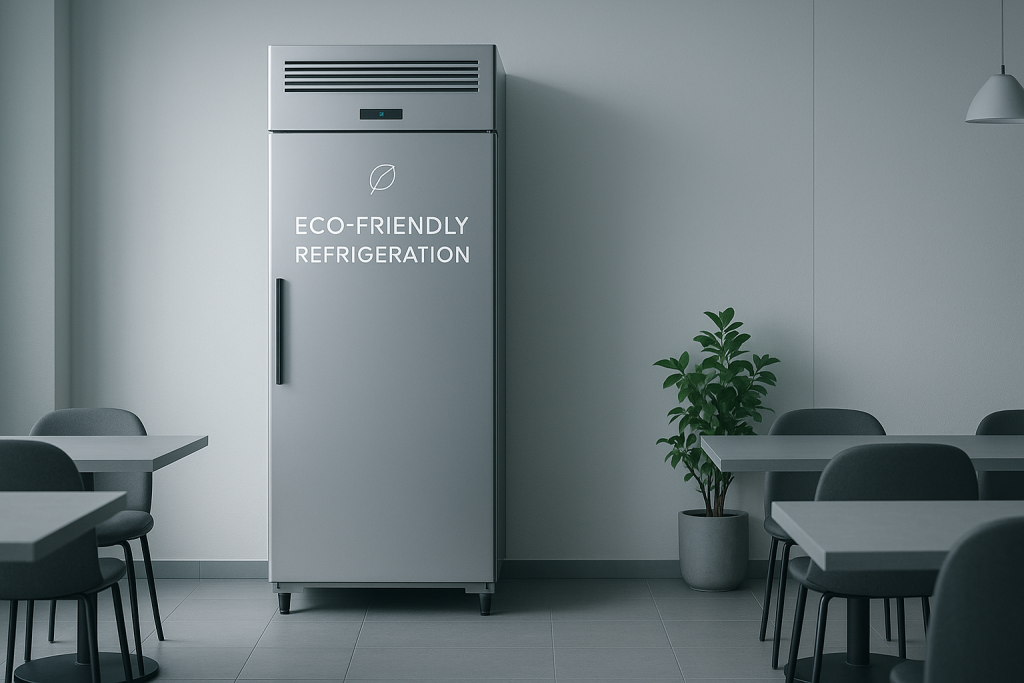As sustainability becomes a priority, restaurants are exploring new ways to preserve fresh ingredients. Modular refrigeration systems offer promising solutions by enhancing food quality and reducing energy consumption. These systems align with the growing trend of eco-friendly practices in the food industry.
The shift towards sustainable practices in the restaurant industry is transforming supply chain management. By adopting modular refrigeration techniques, restaurateurs can maintain the quality and freshness of their ingredients. This approach reflects advancements in refrigeration technology, emphasizing energy efficiency and resource conservation. These innovations are inspired by industries that have long prioritized temperature control, such as pharmaceutical cold storage solutions, showcasing the cross-industry benefits of advanced refrigeration methods.
Enhancing sustainability with eco-friendly refrigeration
Integrating eco-friendly refrigeration systems into restaurant operations significantly boosts sustainability efforts. These systems are designed to minimize energy consumption while maximizing cooling efficiency. Unlike traditional refrigeration units, they use advanced insulation materials and smart technology to maintain consistent temperatures with less energy. This is crucial for preserving the quality of fresh produce, particularly in farm-to-table settings where ingredient freshness is paramount.
By reducing energy usage, these systems help lower operational costs and decrease carbon footprints. Restaurateurs looking to align with environmental standards will find these benefits compelling. Additionally, the adoption of such systems positions restaurants as leaders in sustainability within the food industry. This move not only attracts environmentally conscious diners but also sets a benchmark for industry peers.
Moreover, these eco-friendly solutions incorporate flexible design features that allow for scalability and customization based on specific restaurant needs. Whether you run a small bistro or a large dining establishment, these systems can be tailored to fit unique spatial and operational requirements. This adaptability ensures that you can optimize storage space while still adhering to sustainability goals.
Flexible designs support operational efficiency
The flexibility of modular refrigeration systems is a game-changer for restaurateurs aiming to enhance operational efficiency. These systems offer customizable configurations that can be adjusted to accommodate varying storage needs and seasonal fluctuations in ingredient availability. By implementing such adaptable solutions, restaurants can efficiently manage their inventory without compromising on quality or freshness.
Customizable units allow for optimal space utilization, ensuring that every square foot is used effectively. This is particularly beneficial for farm-to-table restaurants that require ample storage space for fresh produce. The ability to modify storage capacity based on demand helps reduce waste and improve overall kitchen workflow.
In addition to flexibility, these refrigeration units incorporate cutting-edge technology to maintain precise temperature control. Advanced monitoring systems provide real-time data on temperature fluctuations, allowing staff to make immediate adjustments as needed. This not only protects food quality but also extends the shelf life of perishable items.
Practical tips to reduce energy consumption
Reducing energy consumption is a key priority for restaurants adopting eco-friendly refrigeration solutions. One effective strategy involves conducting regular maintenance checks to ensure all components are functioning optimally. Clean coils, well-sealed doors, and calibrated thermostats contribute significantly to energy efficiency.
Another practical tip is to utilize high-efficiency lighting within refrigerated spaces. LED lights generate less heat compared to traditional bulbs, thereby reducing the cooling load on the system. Implementing motion sensors can also help minimize unnecessary lighting use, further conserving energy.
You can also consider integrating renewable energy sources into your refrigeration setup. Solar panels or wind turbines can provide additional power to offset electricity usage from traditional grid sources. By harnessing clean energy, restaurants not only cut down on utility bills but also enhance their environmental credentials.
